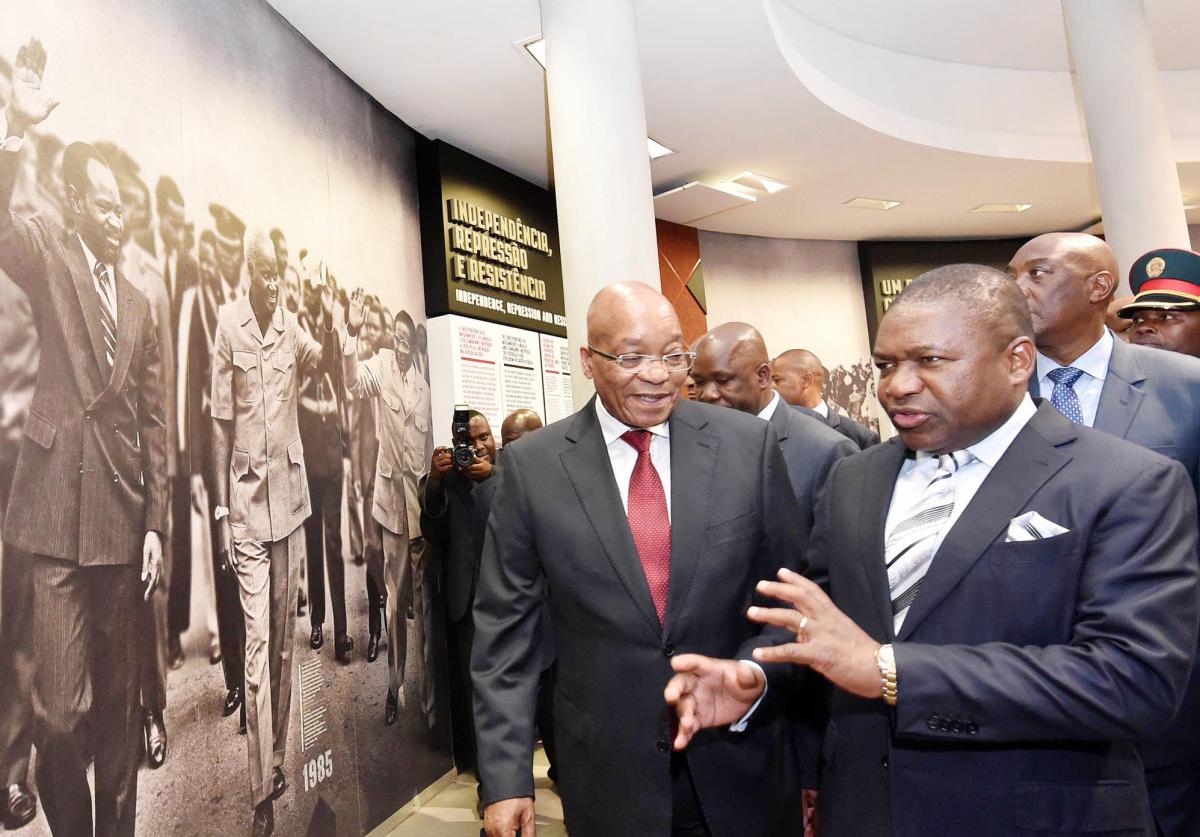Heritage Month
There is an old Setswana proverb that says “matlo go shwa mabapi”, which literally means when one house burns, the next house will also burn.
 Mozambique and South Africa have always had a close relationship with the countries having trade, political, cultural and social ties. Both countries also fought to attain democracy.
Mozambique and South Africa have always had a close relationship with the countries having trade, political, cultural and social ties. Both countries also fought to attain democracy.
Mozambique is one of South Africa’s top five trading partners in the region. In 2014, South African exports to Mozambique amounted to R32.6 billion, while imports from Mozambique to South Africa totalled R11.3 billion.
In 2015, bilateral trade between the two countries amounted to R39.9 billion. South African exports to Mozambique totalled of R29.5 billion, while Mozambican imports to South Africa amounted to R10.4 million.
“International solidarity is not an act of charity: It is an act of unity between allies fighting on different terrains toward the same objective. The foremost of these objectives is to aid the development of humanity to the highest level possible.” Samora Machel.
The border between the two countries passes through one of Africa’s largest game reserves, the Kruger National Park.
In addition, Xitsonga is spoken in Mozambique and parts of Limpopo.
Mozambique was a Portuguese colony until 1974 when the Front for the Liberation of Mozambique (Frelimo) overthrew the government.
A new political era followed with Samora Machel becoming the country’s first black president in 1975. He is often likened to former President Nelson Mandela because he too fought an oppressive colonial regime.
During apartheid, President Machel helped most of the South African Development Community (SADC) countries fight their colonial rulers.
President Machel encouraged independent states and many leaders to help free other countries that had not gained their independence at the time.
Mozambicans understood that their liberation was incomplete unless the whole of Southern Africa was liberated.
President Machel’s assistance for the freedom fighters and opposition to the apartheid government made him a target of apartheid security agents.
On 19 October 1986, President Machel and his delegation of ministers and senior government officials were travelling from a Frontline State summit in Zambia when his presidential Tupolev Tu-134 aircraft crashed in the Lebombo Mountains on the border of Mozambique and South Africa.
In 1998, 12 years after President Machel’s death South Africa, under the Truth and Reconciliation Commission (TRC), special investigation into his death was launched. It did not reveal any new evidence.
In 2006 the South African government announced that it would try to investigate the plane crash, which remains one of the great mysteries of the apartheid era.
During the same year, the South African government opened a community library at Mbuzini in Mpumalanga, known as the Mbuzini Samora Machel Public Library. The opening commemorated the 20th anniversary of Machel’s death and acknowledged the assistance Mozambicans gave South Africa’s freedom fighters.
As the two countries mark the 30th anniversary of his death, both governments will work together to commemorate the death Mozambique’s first president.
President Machel supported South African liberation fighters in their struggle against apartheid and allowed them to operate within Mozambique.
Such friendship and support meant that South Africa’s struggle against apartheid was a collective effort.



 Facebook
Facebook Twitter
Twitter WhatsApp
WhatsApp